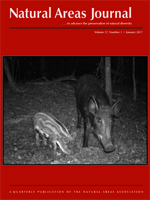It is no longer conventional nor desirable practice for protected area managers to disregard the needs and desires of indigenous people. Several frameworks attempting to identify the roots of indigenous-external conservation actor conflict have emerged in recent decades. The rise of private protected areas (PPAs), however, is yet to be fully represented in these frameworks. We conducted interviews with Mapuche leaders and community members at three PPA sites in Chile's Los Ríos region to explore how they perceived PPAs and their social impacts. Our analysis suggests Mapuche were not resisting constraints on resource rights and use created by Chile's property-rights system. Informants, particularly community leaders and elders, adopted a deliberate and cautious approach to relationship building with PPA administrations, perhaps because of a Mapuche history negotiating colonialism, corporate exploitation, political marginalization, environmental degradation, and capitalism. Our results suggest that to be inclusive of PPAs in Los Ríos, future conflict frameworks should attend less to the notion of controlling territories and people and more on how private property regimes inhibit park-people partnerships, what global and state mechanisms contribute to conflict at the local level, and how locals respond to PPA creation.
How to translate text using browser tools
1 January 2017
Indigenous Perspectives on Private Protected Areas in Chile
Christopher Serenari,
M. Nils Peterson,
Tim Wallace,
Paulina Stowhas
ACCESS THE FULL ARTICLE

Natural Areas Journal
Vol. 37 • No. 1
January 2017
Vol. 37 • No. 1
January 2017
conflict
framework
INDIGENOUS
MAPUCHE
private protected area




